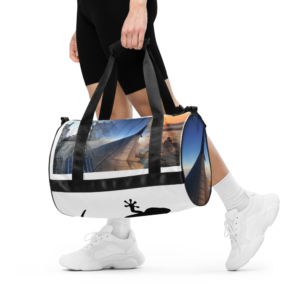Let's Travel the World: A Travel Guide and Tips for the 21st Century is a comprehensive travel guidebook that offers practical advice and insider tips for travelers of all experience levels. Written by bestselling travel author Nikki Page, this book is designed to help readers navigate the challenges of international travel and make the most of their time abroad.
-
Sale!
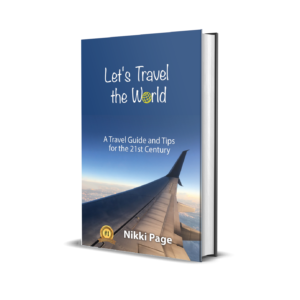
Let’s Travel the World: A Travel Guide and Tips for the 21st Century: Hardcover
Original price was: $32.92.$23.43Current price is: $23.43. Add to cart -
Sale!

Let’s Travel the World: A Travel Guide and Tips for the 21st Century: Paperback
Original price was: $19.99.$18.97Current price is: $18.97. Add to cart -

Throw Blanket: Let’s Travel the World
$30.00 – $48.00 Select options
With over 100 pages of expert advice, Let's Travel the World covers a wide range of topics, from packing and budgeting to cultural etiquette and safety. Whether you're planning your first trip overseas or you're a seasoned traveler looking for new tips and tricks, this guidebook has something to offer.
In addition to practical advice, Let's Travel the World also includes personal anecdotes and insights from the author, making it a fun and engaging read. So if you're ready to explore the world and make unforgettable memories, Let's Travel the World: A Travel Guide and Tips for the 21st Century is the perfect companion for your next adventure.
Planning Your Trip
Planning your trip can be both exciting and overwhelming. There are many things to consider, from choosing your destination to budgeting and packing essentials. In this section, we will provide you with some tips to help you plan your trip.
Choosing Your Destination
Choosing your destination is the first step in planning your trip. Consider your interests, budget, and travel goals. Do you want to explore a new culture or relax on a beach? Are you looking for adventure or a romantic getaway?
Research your destination to learn about the local customs, attractions, and weather. Use travel blogs, guidebooks, and online resources to help you narrow down your choices. Consider the time of year you want to travel and any visa requirements for your destination.
Budgeting and Saving
Budgeting and saving are essential steps in planning your trip. Determine your travel budget, including transportation, accommodations, food, and activities. Use online tools and apps to help you track your expenses and create a travel budget.
Consider ways to save money on your trip, such as booking flights and accommodations in advance, traveling during the off-season, and using travel rewards programs. Look for free or low-cost activities and attractions in your destination.
Packing Essentials
Packing essentials can vary depending on your destination and travel style. Create a packing list to help you organize your items and avoid overpacking. Consider the weather, activities, and cultural norms of your destination when packing.
Some essential items to consider packing include a passport, travel documents, comfortable shoes, a first aid kit, and a travel adapter. Use packing cubes or compression bags to save space in your luggage. Consider purchasing travel-sized toiletries to save space and comply with TSA regulations.
Getting Around
Exploring new cities can be exciting, but getting around can be a challenge. Let's Travel the World: A Travel Guide and Tips for the 21st Century offers valuable advice on transportation options and navigating a new city.
Transportation Options
Depending on your destination, transportation options can vary. Let's Travel the World recommends researching transportation options before arriving at your destination. Some common options include:
- Public transportation: Buses, trains, and subways are often affordable and convenient options for getting around a city.
- Taxis: Taxis can be more expensive, but they offer a more personalized experience and can be more convenient for shorter trips.
- Ridesharing: Apps like Uber and Lyft offer a convenient way to get around a city, and can often be more affordable than traditional taxis.
- Biking: Many cities offer bike-sharing programs, which can be a fun and eco-friendly way to explore a new city.
Navigating a New City
Once you've arrived at your destination, navigating a new city can be overwhelming. Here are some tips from Let's Travel the World to make it easier:
- Get a map: Whether it's a paper map or a digital one on your phone, having a map can help you navigate a new city more easily.
- Ask for directions: Don't be afraid to ask locals for directions or recommendations. They can often offer valuable insights into the best places to visit and how to get around.
- Learn the public transportation system: If you plan on using public transportation, take some time to learn the system before you start exploring. This can save you time and frustration later on.
- Stay aware of your surroundings: Be aware of your surroundings and keep an eye on your belongings. Tourist areas can be prime targets for pickpockets and other types of theft.
Accommodations
Types of Lodging
There are various types of lodging options available for travelers. Some of the most common ones are:
- Hotels: These are the most popular type of accommodation for travelers. They offer a range of amenities and services, such as room service, housekeeping, and concierge service.
- Hostels: These are budget-friendly accommodations that are ideal for backpackers and solo travelers. They typically offer shared dormitory-style rooms and communal spaces.
- Airbnb: This is a popular platform that allows travelers to rent out apartments, homes, or rooms from local hosts. It's a great option for those who want a more authentic travel experience.
- Resorts: These are ideal for travelers who want to relax and unwind. They offer a range of amenities, such as spas, pools, and restaurants.
Booking Tips
Booking the right accommodation can make or break your travel experience. Here are some tips to keep in mind:
- Book in advance: This is especially important if you're traveling during peak season. Booking in advance can help you secure the best rates and availability.
- Read reviews: Before booking, make sure to read reviews from other travelers. This can give you a good idea of what to expect and help you avoid any unpleasant surprises.
- Compare prices: Don't settle for the first option you find. Shop around and compare prices to ensure you're getting the best deal.
- Consider location: Make sure to choose an accommodation that is conveniently located to the attractions you want to visit. This can help you save time and money on transportation.
Exploring Your Destination
Once you arrive at your destination, it's time to start exploring! Use this section to help you navigate local culture and customs, discover must-see attractions, and find off-the-beaten-path adventures.
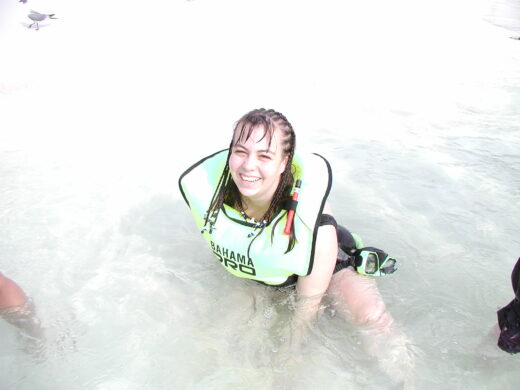
Off-the-Beaten-Path Adventures
If you're looking for an adventure, consider exploring off-the-beaten-path destinations. Take a hike through a national park, try a new outdoor activity, or visit a local village to experience the authentic culture of the area.
Research the safety of the area and consider hiring a guide for more remote adventures. Be respectful of the environment and local communities, and leave no trace of your visit.
Local Culture and Customs
Immerse yourself in the local culture by learning about the customs and traditions of the area. Research the dress code, social etiquette, and language to avoid any cultural faux pas. Consider taking a language course or hiring a local guide to help you navigate the customs and traditions of the area.
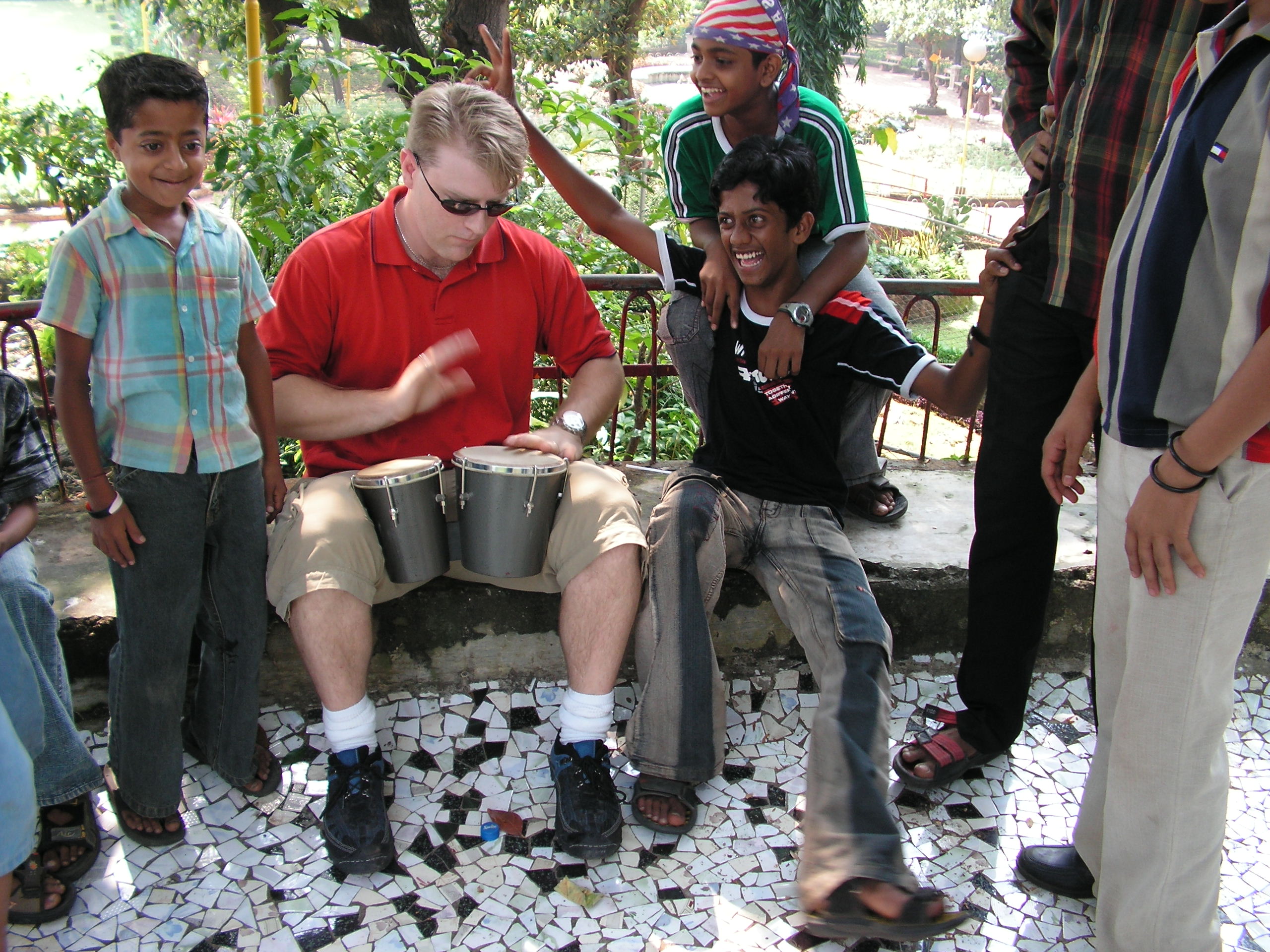
Try local cuisine and attend cultural events to fully experience the local culture. Respect the local customs and traditions, and be mindful of your behavior to avoid offending locals.
Must-See Attractions
Research the must-see attractions of the area before you arrive to ensure you don't miss anything. Consider purchasing tickets in advance to avoid long lines and crowds. Use a map or guidebook to help plan your itinerary and make the most of your time.
Be sure to visit the iconic landmarks and monuments of the area, but also consider exploring lesser-known attractions. Ask locals for recommendations and discover hidden gems off the beaten path.
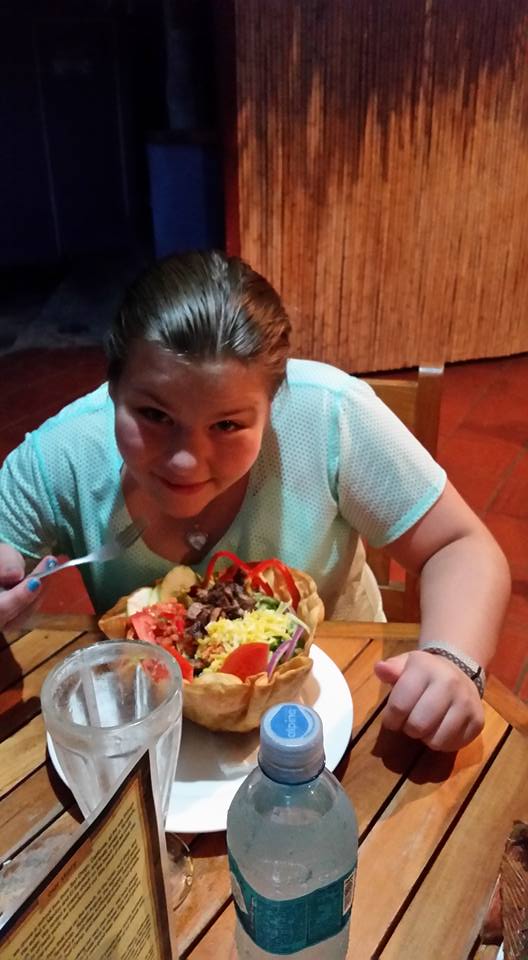
Section 6: Staying Safe and Healthy
Travel Insurance
One of the most important things you can do to stay safe and healthy while traveling is to purchase travel insurance. This can help cover unexpected medical expenses, trip cancellations, and other emergencies that may arise during your trip. Make sure to read the policy carefully and understand what is covered and what is not.
Common Travel Health Concerns
When traveling to different parts of the world, it's important to be aware of common health concerns that may affect you. Some of the most common travel health issues include:
- Food and waterborne illnesses
- Malaria and other mosquito-borne diseases
- Altitude sickness
- Sunburn and heatstroke
Make sure to research the specific health risks of your destination and take appropriate precautions, such as getting vaccinated or taking medication to prevent malaria.
Safety Tips
Traveling can be an exciting adventure, but it's important to stay safe and avoid dangerous situations. Here are some tips to help you stay safe while traveling:
- Keep your valuables, such as passports and money, in a safe place
- Be aware of your surroundings and avoid walking alone at night
- Research the local customs and laws of your destination
- Use caution when using public Wi-Fi and avoid accessing sensitive information
- Make copies of important documents and keep them in a separate location
By taking these precautions, you can help ensure a safe and healthy trip.
Technology and Travel
Apps and Websites for Travelers
In today's world, technology has revolutionized the way we travel. With the help of various apps and websites, travelers can now plan their trips and make bookings with just a few clicks. Here are some popular apps and websites that every traveler should know about:
- Skyscanner - This app helps you find the cheapest flights to your destination.
- Booking.com - This website offers a wide range of accommodations, from budget hostels to luxury hotels.
- Airbnb - This app allows you to book unique accommodations, such as apartments, villas, and even treehouses, from local hosts.
- TripAdvisor - This website offers reviews and recommendations from other travelers, helping you plan your itinerary and avoid tourist traps.
- Google Maps - This app helps you navigate your way around unfamiliar places, with real-time traffic updates and public transportation information.
Staying Connected While Abroad
Staying connected while traveling is essential for many people, whether it's for work or to keep in touch with family and friends. Here are some tips for staying connected while abroad:
| Option | Pros | Cons |
|---|---|---|
| International Roaming | Convenient and familiar | Expensive and slow |
| Local SIM Card | Cheaper and faster | Requires a compatible phone and local knowledge |
| Portable Wi-Fi Router | Can connect multiple devices | Requires charging and additional fees |
It's important to research your options and choose the one that best fits your needs and budget. Additionally, it's always a good idea to download offline maps and important documents before your trip, just in case you don't have access to the internet.




